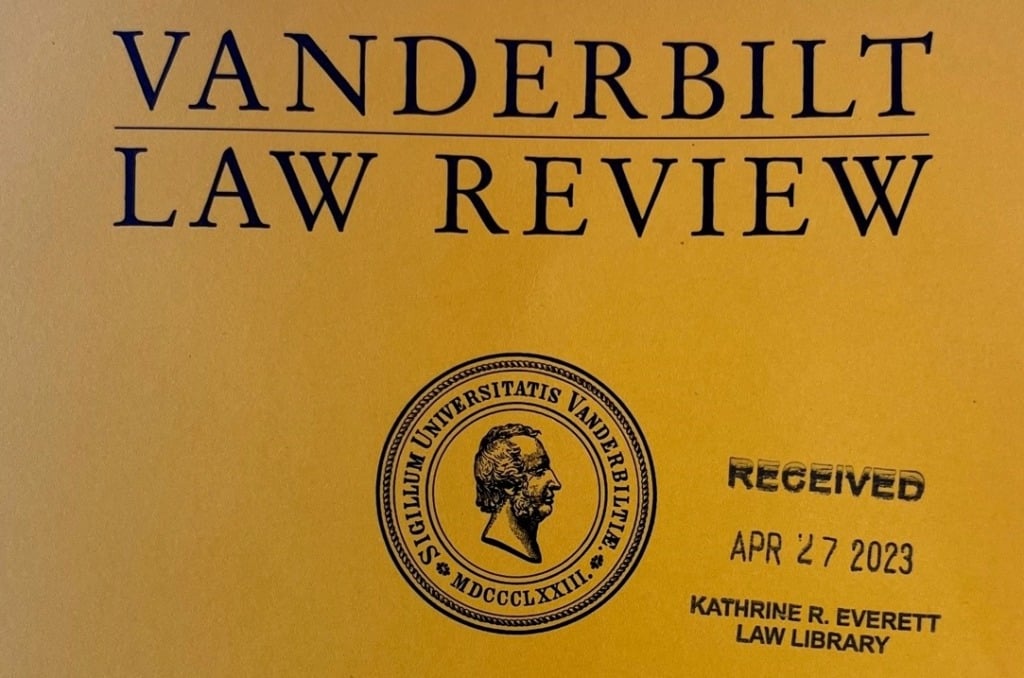New Scholarship on the Hague Service Convention
Thomas G. Vanderbeek recently published a note in the Vanderbilt Law Review that considers whether and to what extent parties should be permitted to “contract around” the Hague Service Convention (HSC). The conventional wisdom holds that the best way to avoid the HSC is to appoint a local agent to receive service of process. Once…
Continue ReadingDiscovery and Immunity: LIV v. PGA
The U.S. legal battle between the PGA Tour (Tour) and the upstart rival LIV Golf continues to revolve around discovery. As regular TLB readers know, LIV Golf is a new professional golf tour that competes with the PGA, in part by luring PGA players to play in LIV tournaments. LIV is financed by the Public Investment…
Continue ReadingWhy the Indictment Against Halkbank Must Be Dismissed
In 2019, the United States indicted Turkiye Halk Bankasi (Halkbank), a Turkish state-owned bank, alleging a multiyear scheme to evade U.S. sanctions against Iran by using fraudulent transactions to transfer the proceeds of oil and gas sales to Iran. Last month, the Supreme Court rejected Halkbank’s claim of immunity under the Foreign Sovereign Immunities Act…
Continue ReadingLitigating Expropriation Claims in U.S. Courts
Foreign sovereigns generally enjoy sovereign immunity in the United States by operation of the Foreign Sovereign Immunities Act (FSIA). The FSIA specifically provides, however, that a foreign sovereign shall not be immune in any case in which “rights in property taken in violation of international law are in issue.” On its face, this expropriation exception…
Continue ReadingFurther Developments in Smart Study
TLB has been following Smart Study v. Happy Party-001, a Chinese counterfeiting case in the Southern District of New York, since Judge Gregory Woods issued his thoughtful opinion last summer concluding that service by email on Chinese defendants is not permitted by the Hague Service Convention (a decision we covered in a prior blog post)….
Continue ReadingDear Justice Gorsuch: There’s No Reason to Worry About the Remand in Halkbank
In Turkiye Halk Bankasi A.S. v. United States (Halkbank), the Supreme Court held that the Foreign Sovereign Immunities Act (FSIA) does not apply to criminal proceedings. The Court remanded the case to the Second Circuit to reconsider Halkbank’s claim of common law immunity. Justice Gorsuch, joined by Justice Alito, wrote a partial dissent. He would…
Continue ReadingSupreme Court Oral Argument in Extraterritorial RICO Case Marked by Confusion
The Supreme Court heard oral argument last week in Yegiazaryan v. Smagin and CMB Monaco v. Smagin, two cases testing when civil RICO can be used to help enforce a foreign arbitration award. Because I have described the facts in a previous post, I will be brief here. Smagin and Yegiazaryan are Russian citizens who…
Continue ReadingChina’s Draft Law on Foreign State Immunity—Part II
In December 2022, Chinese lawmakers published a draft law on foreign state immunity, an English translation of which is now available. In a prior post, I looked at the draft law’s provisions on immunity from suit. I explained that the law would adopt the restrictive theory of foreign state immunity, bringing China’s position into alignment…
Continue ReadingClimate Change Decision Points to the World’s Courts
Earlier this year, the Supreme Court of Hawaii issued a major decision about climate change. The case related to a request that the state Public Utilities Commission (PUC) approve a biomass power plant that purportedly would have had negative environmental effects. The PUC denied approval and the Supreme Court affirmed, announcing that the state constitution’s…
Continue Reading







